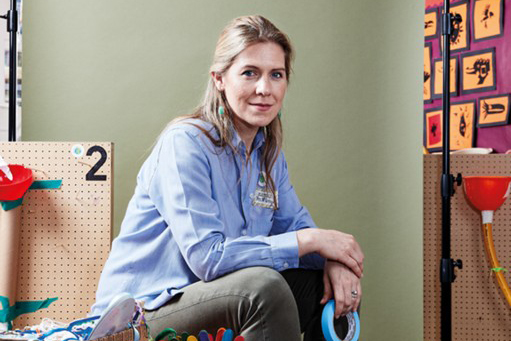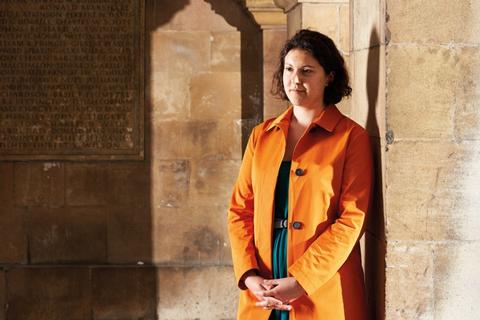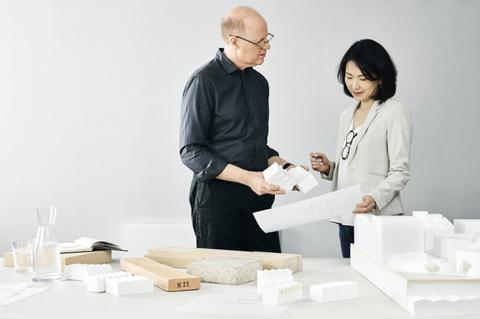Elizabeth - 'Tinkering' in Primary Schools
Tinkering is a newly identified creative, inquiry-based, construction approach to education, which focuses on learning by doing, by trial-and-error and through play.

With undergraduate degrees in both theatre and biology, and over ten years’ experience as a primary school teacher in the US, I moved to London in 2013 and began running science workshops for primary school pupils. Through this work and the questions it prompted me to ask, I got in touch with Dr Winterbottom, who introduced me to ‘tinkering’, and who is now my supervisor on this unexpected and exciting journey of a PhD. I am now finishing my second year of a PhD in educational research and am fortunate to be a Cambridge Trust Scholar, with an Emmanuel studentship from the Roger Ekins Foundation to support my work. I am conducting some of the first systematic empirical research on tinkering by carrying out an exploratory case-study, which is investigating whether and how primary school pupils encounter aspects of the nature of science during a tinkering activity called Marble Machines.
Tinkering is a newly identified creative, inquiry-based, construction approach to education, which focuses on learning by doing, by trial-and-error and through play. Following my MPhil, which looked at tinkering’s relationship with a growth mindset, my PhD looks at tinkering’s potential for students to encounter and acknowledge the sociology, philosophy and history of science and the associated characteristics of scientific knowledge.
As a practitioner-researcher, my data comes from once-weekly two-hour workshops with marble machines that I facilitate and record at a school in London as the ‘Scientist-in-Residence’. Over 30 weeks, all the pupils (aged six to 11) come once to do the same activity in workshops, constructing a path from scratch for a marble to travel down. While I offer them a starter challenge – to create the longest trip possible for the marble – they often set their own. Examples include the challenge of building from the ceiling to the floor, creating a game from the unpredictability of the marble’s movement and making a roller-coaster loop-the-loop. As they work, they engage in an investigation they have chosen themselves, creating problems to solve and repeating possible solutions, using their initiative, creativity, evaluation, knowledge and communication skills as they test and revise their marble runs, often developing problems and challenges for themselves.
It is important for individuals to understand and use science as a way of knowing the world.
I am passionate about creative learning and bringing about an appreciation of science as a dynamic process, and I hope that my research will lead to a greater understanding of what kinds of meaningful learning about science tinkering may offer in a classroom.


